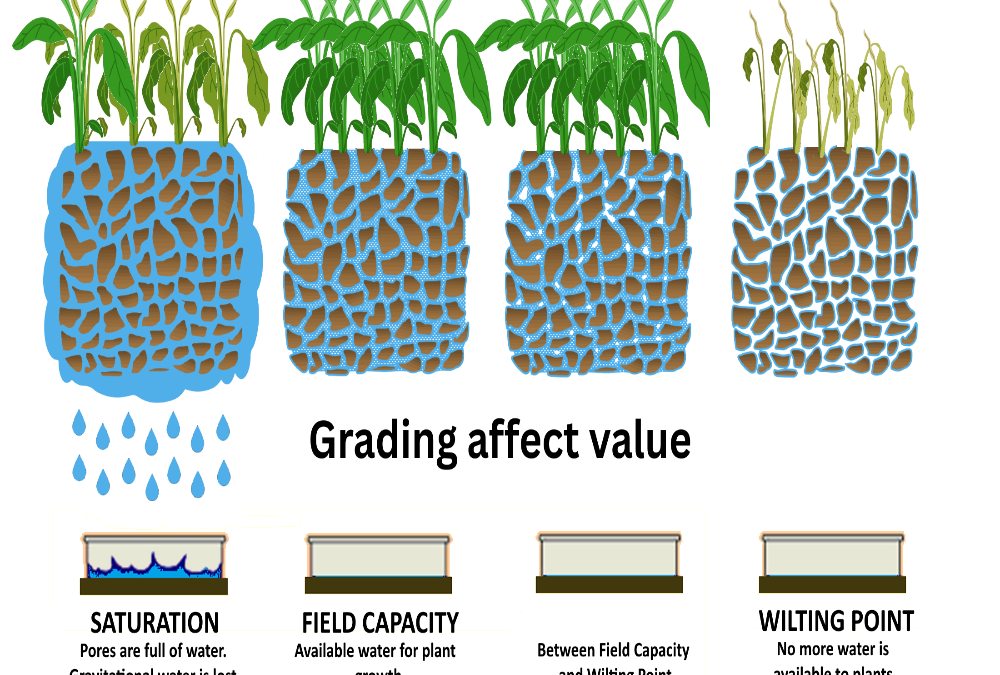Soil Quality and Structural Suitability
Good soil quality supports heavy construction and reduces foundation costs. Poor soil requires treatment or reinforcement, which increases development costs and reduces land value.
- Stable, compact soil (like red or gravelly soil) enhances construction feasibility
- Loose or clay-heavy soil may require piling or soil replacement, lowering valuation
Drainage and Water Flow
Effective natural or engineered drainage protects against waterlogging, supports year-round usability, and reduces maintenance risks.
- Well-drained plots are valued higher due to lower risk of erosion or flooding
- Low-lying or water-retaining sites may need landfilling and stormwater systems, reducing net land value
Grading and Site Leveling
Flat or gently sloping land is easier and cheaper to develop. Uneven terrain increases earthwork and site preparation costs.
- Leveled land reduces construction timelines and setup cost
- Sloped or irregular plots may require cutting, filling, and retaining walls, impacting appraised value

